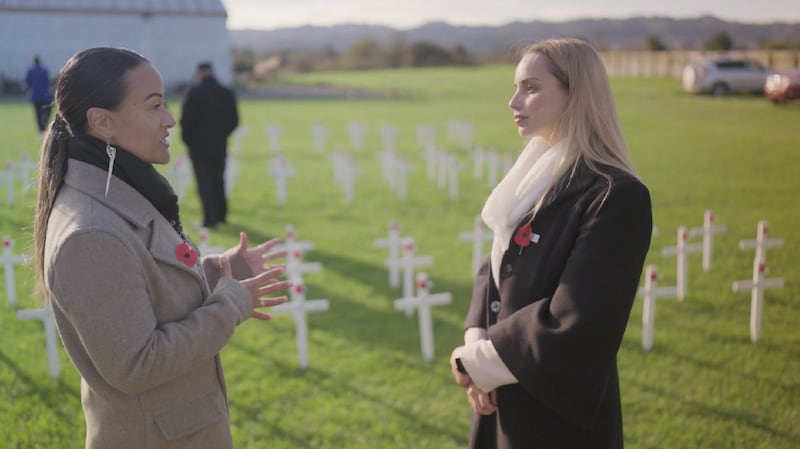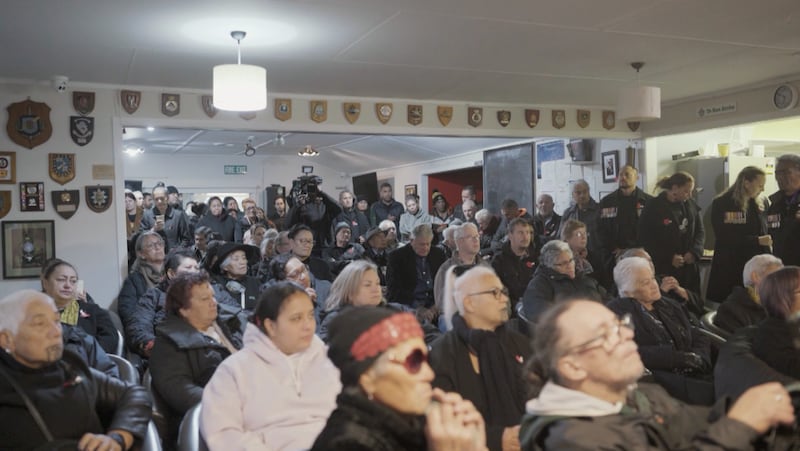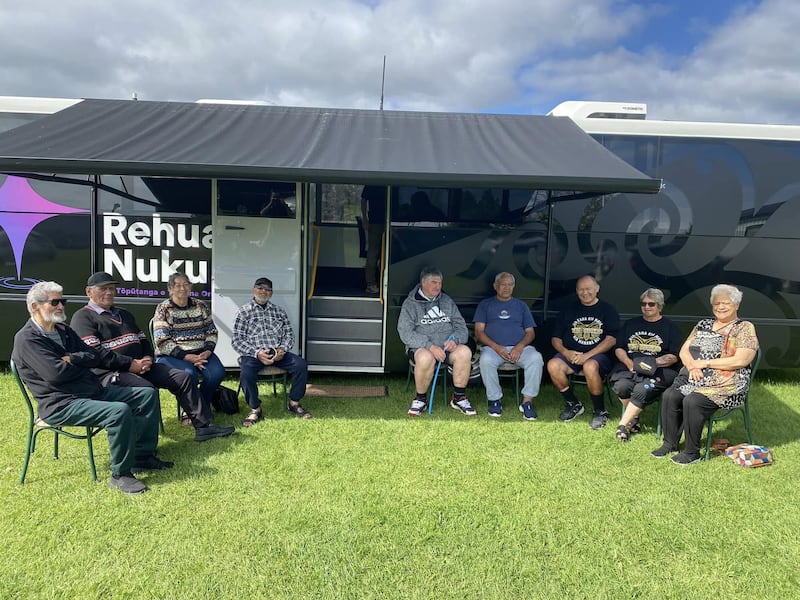In a bid to retain their mana motuhake, a small RSA club in Te Teko, Mātaamua, has decided to break away from the national RSA.
Their president, Hemana Waaka, says they’re leaving the Royal NZ Returned Services Association’s (RNZRSA) because of a new constitution that doesn’t recognise Te Tiriti o Waitangi.
“We are now moving away from the words RSA as part of our mana motuhake. Today, we have replaced it with our own brand and entity. Times have changed,” Waaka said during a speech to members and their whānau on ANZAC Day this year.

The RNZRSA began work to change its constitution in 2022, and it was approved in April 2025. But dozens of clubs have threatened to leave if the constitution is passed, with concerns that the change would undermine the fundamental grassroots foundations.
Waaka says the rewrite would have been the ideal time to add Te Tiriti o Waitangi to the new constitution.
When the draft of the new constitution was completed in 2024, branch presidents nationwide had a chance to review it. Waaka says the constitution then had no mention of cultural interventions.
At a meeting with members of the RNZRSA in Whakatāne in 2024, Waaka asked if the constitution would recognise Te Tiriti o Waitangi, but the answer he received was vague.
“It was a waste of time. They weren’t going to put it in because the majority of all of those presidents out there are mostly Pākehā, and maybe the sound of the Treaty would not be too their liking,” says Waaka.
National RNZRSA national president Sir Wayne (Buck) Shelford says recognising Te Tiriti in the constitution would have been valuable, but it would be a long process.
“If you want it there, we have to take it to the whole of New Zealand and all the veterans, and they vote on it,” says Shelford.
“I would say that it would come up again, but then it’s got to go to the vote, to the remit, put the remit i,n and go from there. Those are the sort of things that will take a long time.”

Māori veteran injustices - why Te Tiriti should be recognised
Among those commemorating ANZAC this year in Te Teko, in memory of her koro, is lawyer Tania Waikato. She was in full support of the decision for Te Teko to break away from the RSA.
“Our firm has just recently been involved in the Waitangi Tribunal hearings on the Veterans Inquiry, and the inequality and injustices that our Māori veterans have faced for a very long time are very apparent. So for me, a decision like this just showed leadership and it’s an expression of mana motuhake and tino rangatiratanga here.”
Waikato says one of the most telling issues affecting Māori veterans and whānau in the Te Teko area is land allocations that were given to Pākeha soldiers, but not to Māori soldiers when they returned from war.
“If you go through the drive literally just three km that way, there are roads called Soldiers Settlement Road…that are on whenua that was confiscated from our people and then given to Pākehā soldiers while our Māori soldiers missed out,” says Waikato.
“We’ve got three marae within about a 500m space of each other because we were landless and we were shoved into these tiny little pockets of land that were really left over. So for me, growing up here, it’s a very stark reminder that our soldiers were not treated equally, even though they gave the ultimate sacrifice.”

Constitution must meet legal requirements
The idea to rewrite the new constitution came about in 2022 after the RNZRSA’s National Council identified the need to change how they deliver support to ensure the RSA movement has a sustainable future.
The new constitution addresses legal requirements outlined in the Incorporated Societies Act 2022 to ensure the RNZRSA operates within the legal framework.
Shelford says, “There’s no arguing about it. This is what they’ve put in, and so we’ve got all those in there, and we just updated our constitution to modernize it so people could read it.”
But some clubs have been upset about what they see as the high-handed way it’s been done. Some have interpreted head office as characterising them as booze and gambling dens being mismanaged by non-service personnel as opposed to supporting the found principles.
“The RSAs themselves were a great idea, but the ideas are struggling now,” says Shelford.
“A lot of people are not drinking now. The price of alcohol is right through the roof.”

Name, emblems, and building
Shelford says, if any local RSA branches want to leave the national body, they will not be allowed to use the RSA emblems and symbols.
“If you break away, you’re by yourself and you’re just looking after your own people, which is fine. You can look after your own people, but you just cannot use the names and the RSA letters in your new name if you’re going to have a new Māori name.”
The new name of the Te Teko club is Te Hokowhitu a Tū ki Te Teko Returned Services League (RSL), the name of the first Māori Contingent of the First World War signifying warriors of the war god, Tūmatauenga.
Waaka says, “That name is honoured… We are here for a real purpose, to commit the memory and remember them forever, the flag and a logo of those 500 soldiers that died, and some came back.”
In addition, the new Te Teko RSL owns all its assets. Their buildings were gifted and are on land that is leased.
To look after veterans and their whānau, Waaka already took matters into his own hands by signing a contract with local Māori health authority, Te Puna Ora o Mataatua, to deliver healthcare services to the community.
“Now we get free visits and doctors. They take us to our special appointments. Kāore he utu (there is no cost). And now we can have mirimiri, kāore he utu. Doctors visits. Kāore he utu.”

Waaka says the club will be open to other kaupapa as well.
“We come here for eight-ball tournaments. We open this club up for weddings, birthdays, for cooks when they finish the tangi to come and relax. This is not just an RSA, this is a building for the whole community.”
Waaka says, despite leaving the RNZRS, he will always continue to support other local RSA in the Mātaatua rohe and nationwide.
“Our bonds of comradeship will always remain,” he says.

